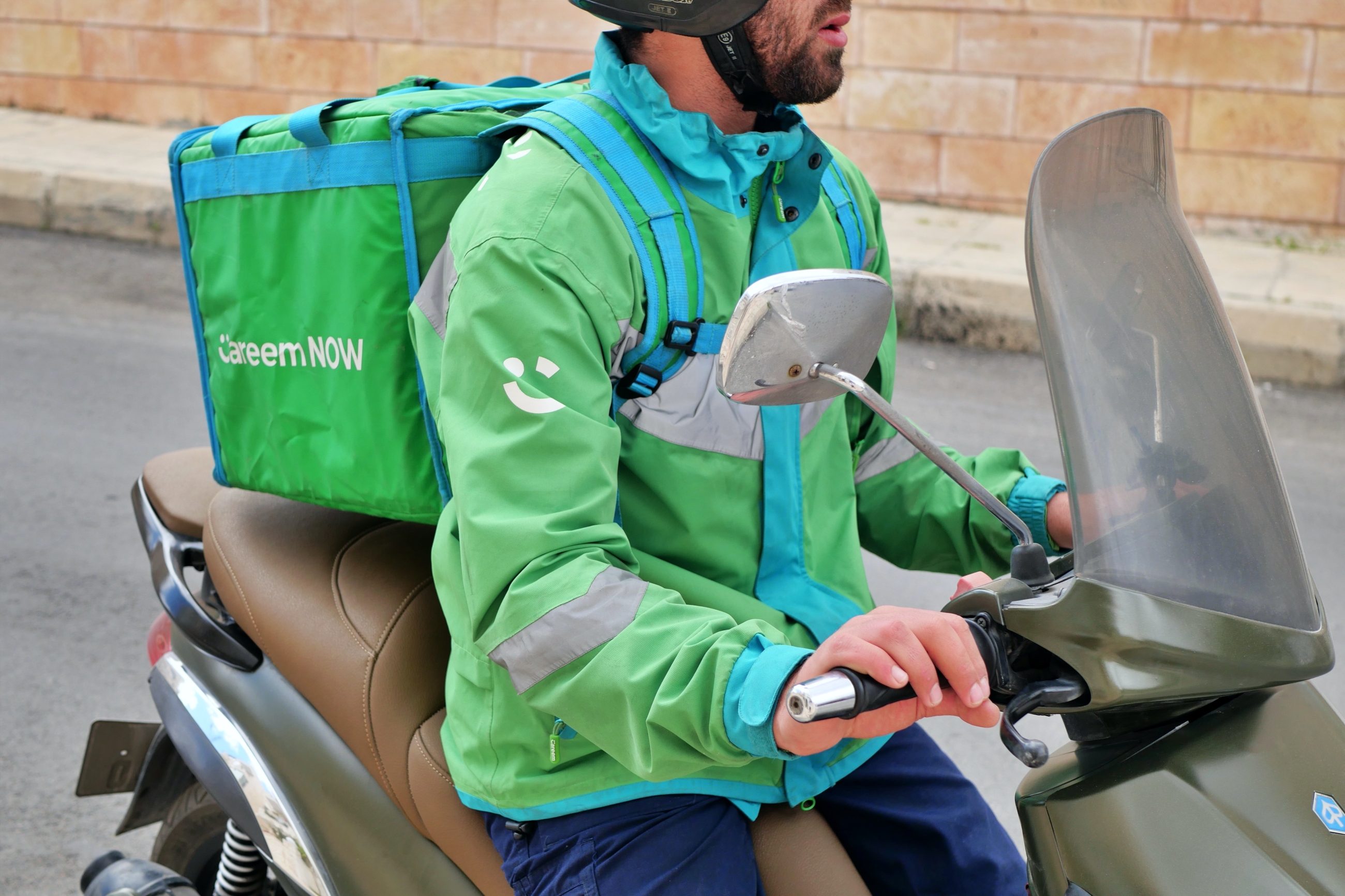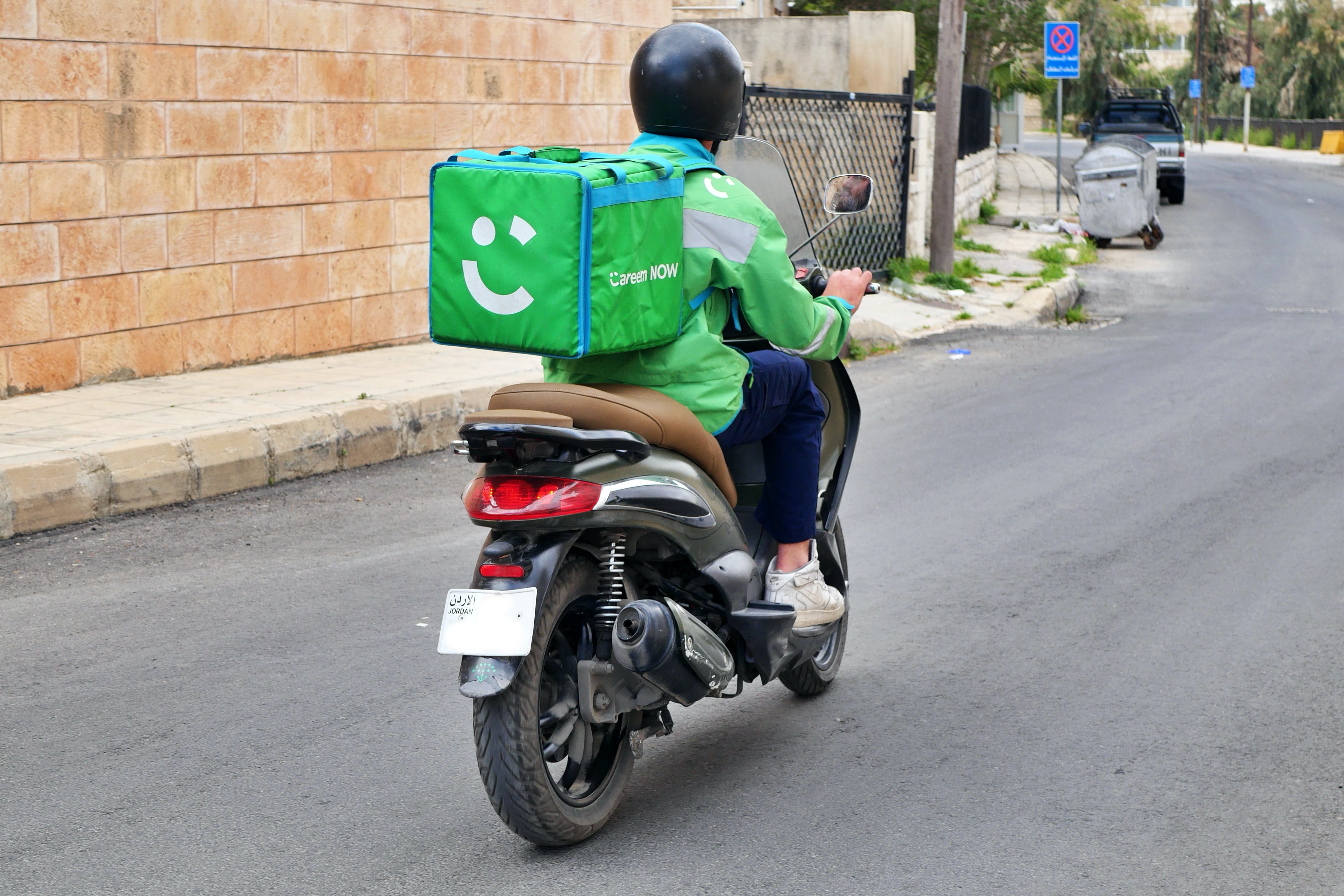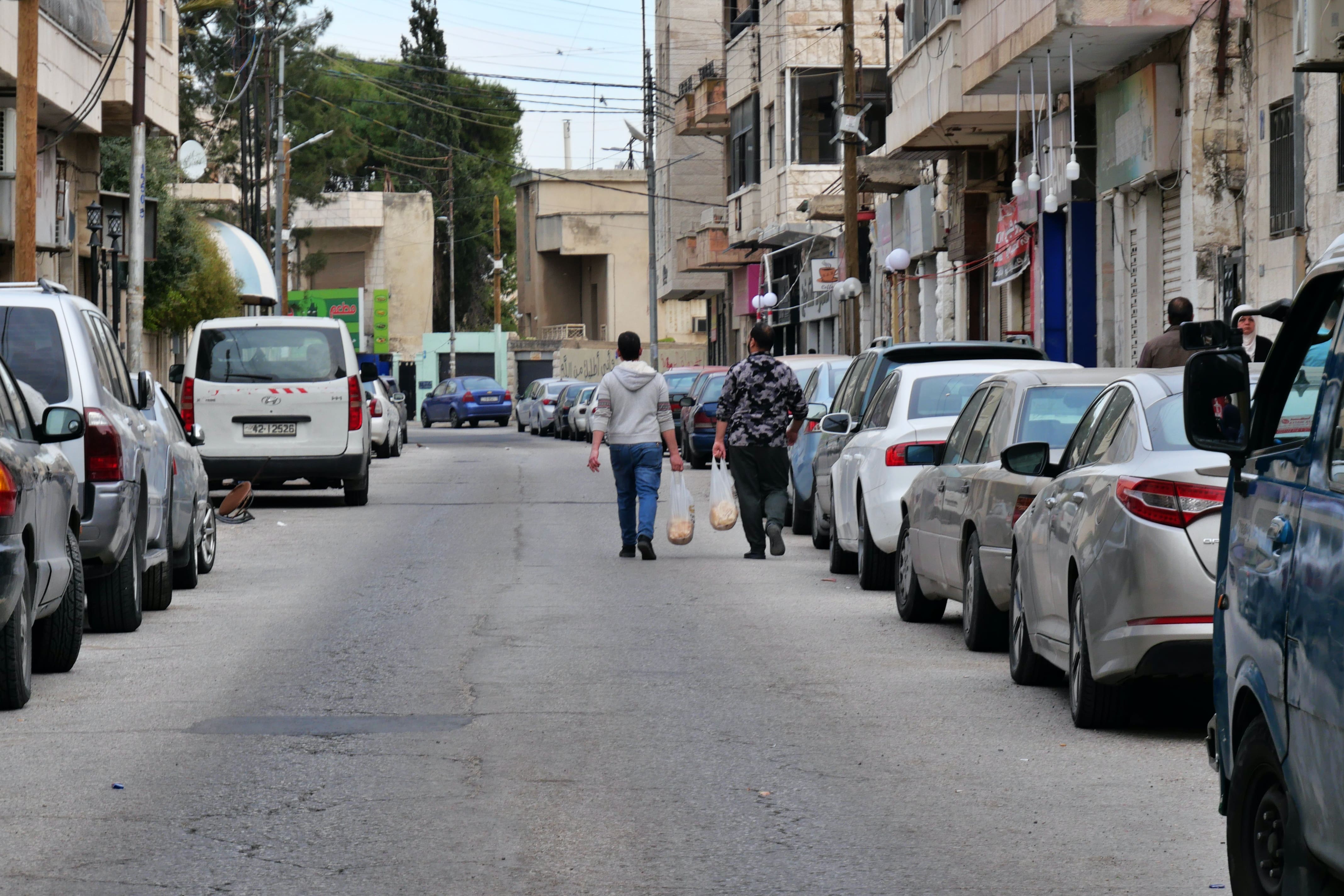Coronavirus: Thousands of Careem drivers in limbo as Jordan puts delivery deal on hold

When the coronavirus lockdown in Jordan was implemented on 21 March, Mujallie Salliti saw it as an opportunity to take a well-deserved break from his job as a Careem delivery driver, thinking it would only last a few days.
The 23-year-old continued to remain calm even when those few days turned into an indefinite period of time.
Belonging to the country’s largest fleet of about 5,700 "captains" driving taxis and food deliveries, Salliti was convinced he would soon be required to work during the lockdown as part of the government’s proposed food delivery operation.
On 23 March, Careem workers were sent a link by the company where they could fill in their details should they wish to be a part of the new service that was set to be an amalgamation of dedicated food delivery companies and supermarket deliveries.
The following day, Careem published a promotional video outlining how the company would operate under the new set of circumstances. Local news organisations reported on the plan and Careem’s founder highlighted how the company was adapting to meet the needs of grocery and e-commerce deliveries in both Jordan and Saudi Arabia in an open letter.
Two days later, Careem sent out an official memo to its drivers explaining that location details would be sent out shortly for drivers to collect special stickers enabling them to carry out grocery deliveries through the app starting the following day.
The memo was sent out after receiving confirmation from the Jordanian government that Careem’s fleet would be part of the collaborative delivery effort, according to a company spokesman.
But just a short time later, an announcement came that the initiative was to be delayed.
“I still wasn’t panicking because I thought ‘okay, so maybe it will happen next week’. But I began to freak out when I saw other companies had started working but we hadn’t,” Salliti told Middle East Eye.
“I’m a single guy, my mother’s dead, I don’t have a relationship with my father and he can barely support himself anyway," he said.
"I’m supporting myself and, with the help of other family members, my two younger half-sisters whose parents are both dead. Careem was my own reliable source of income.”
The same Careem spokesman told MEE the company does not have “clarity” on why the government reversed its decision to mobilise its services.
He added: “We are basically ready to offer this service but [we are] still awaiting the permission and further instructions from the relevant governmental entities.”
The response from a spokesman for the prime minister’s office provided to MEE was also unclear.
He said Careem, along with Uber and yellow cab drivers, was licenced as a transport provider, unlike companies such as Talabat which are licenced as food delivery services. The spokesman said the government has not used the services of transport providers due to health concerns.
Although Careem Ride is licenced by the Land Transport Regulatory Commission, Careem NOW is licensed by the Telecommunications Regulatory Commission as a delivery service. The spokesman did not respond to MEE’s further request for comment regarding this point.
Following the response provided by the government spokesman, Minister of Transport, Khaled Saif, announced on Friday yellow cab drivers would able to operate as delivery drivers from Sunday (today). However, drivers would need to apply for a private operator licence at a cost of 1,000 JD and provide a bank guarantee of 2,000 JD
Salliti began working as a captain for Careem three months ago, using his scooter to make deliveries alongside his work as a nurse caring for palliative care patients and as a tour guide in Amman.
His other lines of work, which have been halted during the lockdown, do not offer an income he can rely on, so the money he was making through Careem gave him the stability he desperately needed. He worked up to 10 hours per day, between five and six days a week, earning an average of 25JD ($35) per day.
“Working with Careem is not perfect - it’s not very fun and it can be exhausting, but my life finally started taking shape. I’d racked up debts trying to support myself and my sisters, and by the end of March I was set to be back on my feet. That was mostly thanks to Careem,” he said.
This month, Salliti has only been able to pay half his rent and has had to borrow money from friends to be able to buy food.
Salliti's story is not unique. Dozens of other drivers have expressed serious concerns over their lack of income in WhatsApp and Facebook groups. Many have pleaded for a solution, emphasising their rapidly decreasing food supplies, while some have complained about the lack of communication from the company.
“By activating Careem, the government would be providing income to more than 5,000 families in Jordan and ensuring a viable delivery system that can cover the whole country. It doesn’t make sense. If I had money I would pay rent, pay my bills and pay for new phone credit. It would get the country moving again to some degree,” said Salliti.
Total lockdown
In addition to the impact on the drivers, the public has repeatedly complained about the current food delivery system across social media. Some people placed orders more than a week ago and are still waiting - an indication that more delivery drivers are needed.
Initially, Jordan’s government implemented a total lockdown banning citizens from leaving their homes for any reason.
The plan was to deliver essentials to homes but after public buses carrying bread were mobbed on the fourth day, the authorities eased the restrictions.
Now, people are allowed out of their homes on foot between 10am and 6pm to buy food. However, not everyone can reach grocery stores without transportation, and the government is urging people to remain indoors where possible, to mitigate the risk of spreading the coronavirus.
It has left thousands of people feeling desperate about their finances. In a televised interview with Roya TV, members of the public expressed their distress and concern over their situation. One man begged the authorities to act before his family starved to death.
Through the enactment of the Defence Law Number Six announced on Wednesday, the government, along with granting a number of protection mechanisms for private sector workers during the crisis, has instructed companies to continue paying workers' wages. However, as Careem drivers are classified as gig workers, they are not eligible for those wage payments.
Threatened with eviction
Another Careem captain, Ali Abu al-Failat, 41, has been threatened with eviction by his landlord as he is unable to pay his rent. He has posted on social media asking for help with finding food through volunteer initiatives - he was awaiting a bag of bread to arrive at his home in northern Amman when he spoke to MEE. He has been particularly frustrated with the lack of financial support offered to captains by Careem.
However, father-of-four, Fadi al-Tiebi, from Marka - a district in the Greater Amman municipality - said drivers accepted these gig worker positions with Careem knowing what that meant.
“I’m angry at the government. It is the government that is not providing the permission for us to work,” the 34-year-old said.
He said he is desperately trying to make his remaining pennies last so that he can continue to feed his family for as long as possible while he is out of work.
“I haven’t paid my rent or my scooter payment. I’m just living off potatoes, tomatoes and bread because there’s no support available for my family. And then it’s companies we’ve never even heard of who have been given permission to work as delivery drivers.”
Middle East Eye delivers independent and unrivalled coverage and analysis of the Middle East, North Africa and beyond. To learn more about republishing this content and the associated fees, please fill out this form. More about MEE can be found here.








